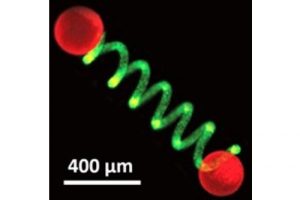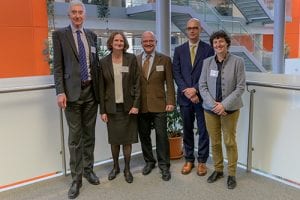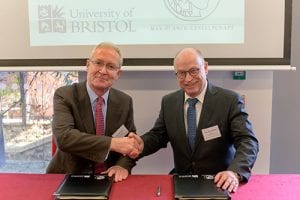** Applications are now closed **
As part of the recently established Max Planck-Bristol Centre for Minimal Biology (MPBC), a post-doctoral Research Associate position is available to develop de novo protein design in bacterial and eukaryotic cells. Funding for this post is available until July 2025.
The position is associated with the protein design laboratory of Prof Dek Woolfson (Chemistry and Biochemistry). The post holder would work in the newly refurbished laboratory for the MPBC, which is housed in the University of Bristol’s School of Chemistry and is a shared space with other MPBC researchers associated with the laboratories of Profs Imre Berger (Biochemistry; genome engineering) and Steve Mann FRS (Chemistry; protocell research). As with all projects in the MPBC, it is anticipated that the work will develop in collaboration with our Max Planck partners in Germany.
The position would be best suited to a talented and ambitious early career researcher with an interest in applying de novo protein design in synthetic and minimal biology. Essential skills for this role would include: experience in molecular cell biology in bacteria and/or eukaryotes, including the design and expression of synthetic genes in E. coli and/or HeLa cells or similar; plus biochemical and biophysical characterisation of proteins in cells using light and electron microscopy and/or FACS. Experience in the de novo design, synthesis, and structural characterisation of synthetic peptides and proteins would be desirable, but it is not essential for this post.
Additional info
- More information, including the job description and how to apply, is available here.
- For informal enquiries, please contact Dek Woolfson via email: d.n.woolfson@bristol.ac.uk
- The closing date for applications is 20 March 2022.




